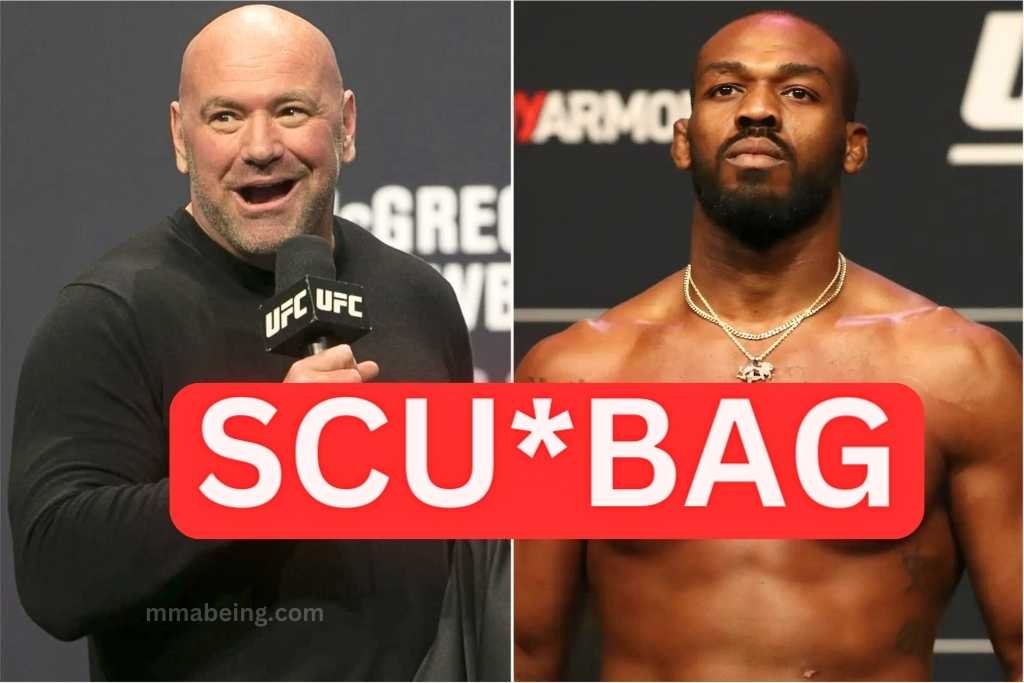In recently unsealed documents as part of the UFC antitrust lawsuit, a heated exchange between Dana White and Lorenzo Fertitta revealed their frustration with Jon Jones’ money demands.
The UFC had plans to book a rematch between Jones and Alexander Gustafsson, but negotiations on a contract extension hit a snag when Jones insisted on fighting Daniel Cormier instead. White expressed his annoyance with Jones, referring to him as a “scumbag” in a text message to Fertitta. The contentious relationship between Jones and the UFC had already faced its share of challenges, including Jones’ refusal to take a short-notice title defense against Chael Sonnen. However, with five fights left on Jones’ contract, White and Fertitta were determined to secure the champion for an extended period.
A deeper look into the unsealed documents provided insight into the negotiating tactics employed by the UFC. The plaintiffs in the antitrust suit allege that the UFC engaged in an illegal scheme to depress fighter salaries by locking them into long-term contracts. The UFC’s actions were seen as an attempt to stifle competition in the market for elite MMA fighters. The case, set to go to trial in April, could result in damages exceeding $1 billion. While the focus of the lawsuit centers on the UFC’s practices, it also sheds light on the tense dynamic between Jones and White.
Throughout the legal proceedings, White made it clear that he believed the UFC didn’t need Jones. In response to a plaintiff’s lawyer, White confirmed that he wanted Fertitta to convey this message to Jones. However, White clarified that his dissatisfaction with Jones stemmed not only from negotiations but also from Jones’ personal choices and behavior. The UFC president was open about his disappointment with Jones’ actions inside and outside the cage, referring to him as a “scumbag in life.”

Jones’ tumultuous relationship with the UFC continued to unravel in the following years. Another contract dispute, this time over his potential pay for a superfight with Francis Ngannou, led to Jones sitting out for over three years. White publicly criticized Jones, accusing him of demanding an “obscene” amount of money, and insinuated that he was afraid to face Ngannou. Jones vehemently denied these claims, calling them lies. Despite the contentious back-and-forth, Jones ultimately signed a new long-term deal with the UFC.
While Jones and the UFC managed to reach an agreement, the relationship between the organization and Ngannou took a different turn. After Ngannou declined to sign a new long-term deal and became a free agent, White shifted his focus and criticized Ngannou’s choice of opponents. He implied that Ngannou was avoiding challenging fights in favor of bigger purses. Jones joined in on the criticism, congratulating Ngannou on his win over Ciryl Gane but then taking a jab at his muscular physique and questioning his courage.

As the legal battle between the UFC and its fighters continues, the unsealed documents have shed light on the inner workings of the organization. The ongoing antitrust lawsuit raises important questions about the fairness of fighter contracts and their impact on the industry as a whole. With the trial approaching, both sides are preparing to present their arguments and seek a resolution that could have far-reaching implications for the world of mixed martial arts.
